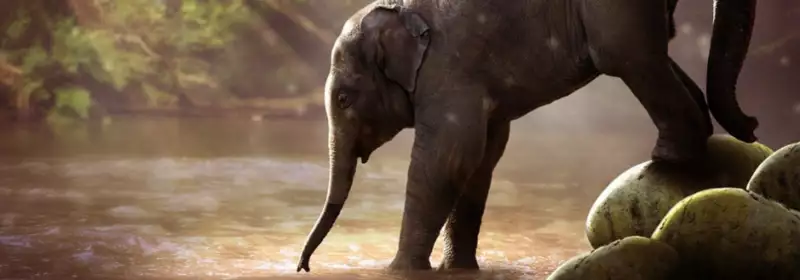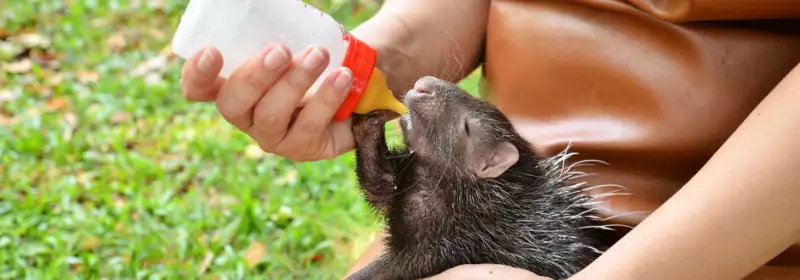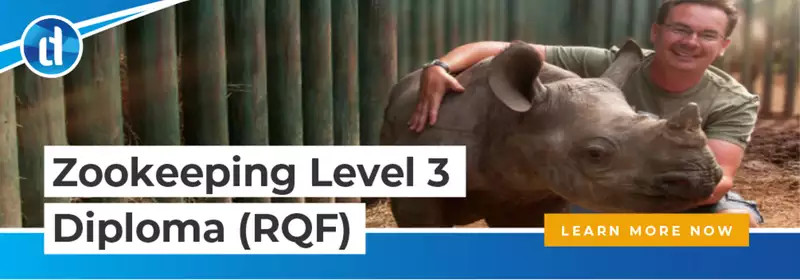Working in a zoo means you’ll play a hand in the conservation efforts that most modern-day zoos drive forward. Improving animal welfare by raising awareness and educating the general public.
Teaching people of all ages about some of the most amazing animals in the world. Explaining how important they are to their ecosystem, the environmental issues affecting them and what we can do to help.
A lot of zoos also partake in international and regional breeding programmes. These programmes were created to form viable populations to support conservation efforts. Providing animals for public education, animal ambassadors to raise awareness, genetic backups for wild populations and supporting important research.
Participating in breeding programmes allows zoos and safari parks to be viable long term. Allowing them to be demographically stable, genetically healthy and well-maintained. Distributing animals across several institutions to lessen the risk of loss and ensuring genetic diversity amongst the species.
Becoming a zookeeper is an incredibly rewarding role that enables you to witness first-hand the benefits of these institutions. Whilst also having the opportunity of a lifetime to interact with all sorts of animals. No matter what stage you’re at in life, it’s never too late to reach your goals of working in a zoo.
Role and Responsibilities

As a zookeeper, you may be required to work long hours, over weekends and even early starts. But it’s worth it to work closely with some of the most incredible animals in the world.
Your day-to-day will often involve many tasks that are physically demanding and repetitive. These are essential for the maintenance of the zoo and the wellbeing of the animals.
Some of the responsibilities you’ll have will include hosing, scrubbing, sweeping and disinfecting enclosures. As well as preparing food such as pellets, fresh produce, meat or hay depending on the animal's nutritional needs. Or even administering medication if need be.
As you’ll spend most of your time with the animals you’re responsible for observing their behaviours. Checking for any signs of distress or ill health. As well as coming up with creative ideas to keep the animals happy, healthy and enriched.
In addition to this, you’ll have to keep records of the animals. Documenting their behaviours, eating habits and mood. Therefore, should you need to liaise with other professionals, like vets, you have a detailed and up-to-date record of the animals.
You may also play a part in designing, building and repairing enclosures. This is to make sure they’re safe and they reflect the animal's natural habitat as closely as possible.
Physical contact between keeper and animals isn’t encouraged in most zoos because it may impact their behaviours. Which can affect breeding success and can make things particularly difficult should a death occur. Even still, it’s natural to build close bonds with the animals you’ll work with.
You’ll also be expected to share your animal knowledge with the zoo visitors. This could be through demonstrations, talks, tours and visitor experience packages.
Essential Skills for Work in a Zoo
As a zookeeper, your role is to make sure the animals are properly looked after, both physically and mentally. You’ll need to be enthusiastic about animal care and be confident in handling a range of animals. As well as being safety conscious and observant with the animals and visitors.
Although your job is primarily working with animals you’ll deal with the public too. A lot of the work in zoos involves educating visitors on the animals on display and the conservation efforts of the zoo. So you need to be able to effectively communicate with people of all ages in an engaging and friendly manner.
Zookeeping is a physical job that requires you to be physically fit. Whether you’re mucking out an enclosure or handling one of the many animals under your care. It would also be helpful to have a driving license for work in large zoos or a safari park.
Qualifications

To become a zookeeper doesn’t necessarily require you to have any qualifications. However, getting qualified ensures you have the knowledge and expertise potential employers are looking for.
The Zookeeping Level 3 Diploma (RQF) is a nationally recognised qualification that is regulated by Ofqual. Held in high regard by zoos across the UK, this qualification develops your understanding of the core elements of zookeeping.
Through the course, you’ll learn about animal welfare, ethics and current legislation surrounding zoos. As well as the conservation work that zoos do and the breeding programmes they’re a part of.
You will cover skills such as enrichment and training in identifying diseases and how to prevent them. You’ll also develop your understanding of proper animal management, zoo design and development.
What’s more, you have the option to complete most of this qualification online through a distance learning provider. So you’re able to work towards your goals whilst still in your current job role.
Study Online
Completing the theory element of your qualification online allows you to study from anywhere that works for you. Whether that’s the comfort of your own home, your favourite café or the library.
Online learning allows you to engage with your learning without impacting your other commitments. Making it easier to add your study sessions into your schedule. Unlike at a physical college where you’ll need to attend class to progress with the course.
You’re free to decide when, where and what pace you learn at. This gives you the chance to relax and actually enjoy your learning experience. Working through the material at a speed that’s right for you.
Once you’re ready you can book in for the practical element of the course. Giving you enough time to plan and make adjustments to your schedule as needed. Minimising the disruption to your routine.
If you’re feeling inspired to reach your goals and become a qualified zookeeper, learndirect can help.
learndirect is one of the UK’s leading online learning providers. Offering a range of animal welfare, zoology and veterinary science courses.
All our courses have flexible payment options and dedicated tutors to support your learning. They’ll provide constructive feedback and any extra assistance where needed.
To learn more on how to prepare for your online learning journey visit our blog here. You can also keep track of all animal awareness days and events with our FREE calendar! Download it here.
Find out more about the Zookeeping Level 3 Diploma (RQF) by getting in touch today or browsing below.



















